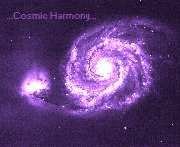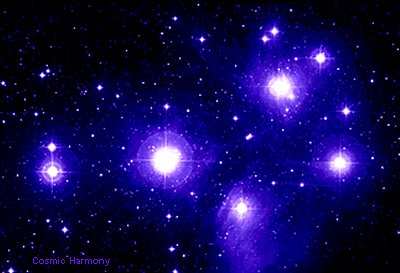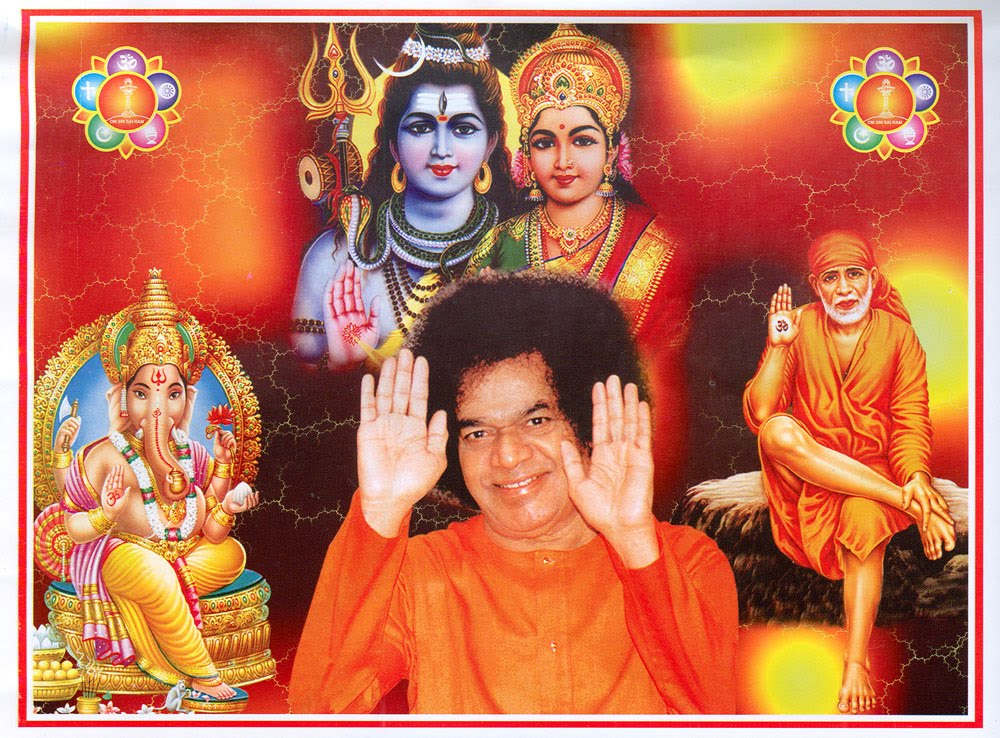|
Vedanta, the Sacred and Ancient Wisdom of the Vedas
Harmony on this earth requires a restoration of human values that comes through an understanding and experiencing of the sacred wisdom. Right ideals will be restored as the concept of Unity permeates humanity. The teachings of the sacred wisdom have been preserved and made available down the ages to the earnest seeker. The dawning light comes from the East and so it is with the wisdom recorded long ago in the ancient Vedas. The light of these ancient teachings dispels ignorance just as dawn replaces darkness.The Sacred Wisdom of the Vedas
Veda means "That which makes you know". The Vedas were recorded in ancient times by pure seers who had attained the ultimate self realization. They "saw" these truths in their quiet states of highest intuition which is why they are called seers. The Vedas had no one source or author but arose from the records of many ancient sages who recorded them as the science of attaining enlightenment. The one single object that the Vedas have in view is to make man divine. They lead him from the animal stage where he completely identifies with the body and suffers hunger, thirst and desires of various kinds to the stage where he recognizes that his human state is far greater than the animal. From there the Vedas awaken in the seeker the intelligence and discrimination that must be used to sublimate the passions and emotions to the level of divinity. After attaining the Divine state, the seeker experiences only eternal bliss. | The Vedas deal with the science of the spirit. They contain the knowledge and procedures necessary to liberate oneself from bondage and blindness. But mere learning of them is no use. They have to be put into practice. That is the purpose of these revelations. The Vedas are the whisperings of God to man and they have been passed down and kept intact since ancient times. The vedic teachings are explained and elaborated in the Upanishads, Sastras, and the Puranas. The same teachings are enshrined in the popular eastern classics: Ramayana, the Mahabharata, and the Bhagavata. All these teach the ultimate truth that "all this is Brahmam" (the eternal transcendent God who permeates all and is given various names by different religions). The individual arises as a wave on the ocean and eventually merges back into the ocean of Brahmam. The mergence is an ecstatic reunion after a prolonged journey of isolation through space, time and form. Sages who have attained to this state of ultimate knowledge of God have proclaimed that everything in this world and the entire universe is nothing but this Brahmam who shines with the effulgence of a billion suns. This is the highest state that can be achieved and is referred to as Advaitha (A or not, Dwaitha or two). In the Advaithic state of ultimate realization, Brahmam or God is experienced as the One without a second. In this state of ecstatic union with Brahmam the appearance of duality, of forms, people, animals, objects that were previously seen to exist separately in this world as what we call objective reality dissolve into the single sight of the entity of Brahmam which is eternal and formless and yet contains all form within it. This transcendent state of ultimate union is referred to in the powerful mantras Aham Brahmaasmi (I am Brahmam) and SoHam (He am I). |
This state of mergence with the Absolute is referred to by many terms in various religions. It is often called Nirvana in the West, Kensho or Satori in Zen Buddhism, the Void or at-one-ment in Tibetan Buddhism; also variously Enlightenment, Self realization, and in the East - Nirvikalpa Samadhi. Christ referred to it in his statement "The Father and I are one" as he attained to this pinnacle of realization towards the end of his earthly career.
Vedanta is that body of thought which contains the wisdom of the Vedas. It deals with this science of self realization by which the individual and temporary wave of consciousness can merge into the eternal ocean of Sat-Chit-Ananda (Existence, Knowledge, Bliss) which is Brahmam or the highest God. This state is attained only through sacrifice, the transcending of likes and dislikes, desires and prejudices of the ego and the state of individuality. One who has attained this state sees all as inherently divine and therefore strives to serve all others as repositories of that same Godhead.
Atma, the Eternal Witness Within
In the Vedantic knowledge, the eternal witness within every living being is called the Atma. The word Atma means light or effulgence. The Atma is the very core of each individual which registers all feelings, thoughts, consciousness, and awareness. Western science has taught us that our living forms or bodies have evolved from simple one celled organisms into the complex organization of the human body as it exists today. Inherent in this view is that our thoughts and feelings arise as illusions from the electrical nerve activity in the brain. But the sage knows the body to be secondary and dependent on the primary spirit within. Without the spiritual Atma, the perceiver of all thoughts, feelings and sensations; the organically living form would fall down senseless in an instant. The spiritual entity is the cohesive force behind the physical organization and once the Atma withdraws from the body, disintegration begins immediately.The Upanishads on the Atma
The Upanishads are that section of the Vedas which deal with the Higher Wisdom. The name Upanishads means steadfast study of the means of attaining to the Ultimate Reality. There are in all 108 Upanishads of which 10 have gained popularity through the commentaries by Shankara, the great teacher of the East.The Katha Upanishad deals specifically with the subject of the Atma.
| Many more who hear of the Atma, do not understand. Wonderful is the person who speaks of it. Intelligent is the person who learns of it. Most blessed is he who hears it from a knowing teacher and understands it. The Katha Upanishad contains the story of the young and virtuous Nachikethas. When the father of Nachikethas gives away inferior gifts as part of a ritual ceremony, the boy tries to lessen the impact of this serious error in judgment. The father gets angry and in disgust at his interference shouts that he is going to give the son away to Yama, the god of death. The son resolves that the words uttered by the father should not be untrue so he proceeds to the residence of Yama to offer himself up as a ritualistic gift. The boy spends three nights waiting to see the god. When Yama discovers his presence, he feels sorry that the boy had to wait so long, so he decides to grant him three boons, one for each night he waited. Nachikethas asks first that when he returns home, his father will have shed his anger and gained mental equanimity and so welcome him home. Second, he asks to know the secret of the absence of hunger and fear of death in the heaven worlds. Yama gladly grants these boons and further initiates his new disciple into the details of a special ritual ceremony. Yama sees the reverence, intelligence, and eagerness of his new pupil and is much pleased with him. Nachikethas then asks for his third boon. He tells his new teacher: "some say that death is not the end; that there is an entity called the Atma which survives the body and senses. Teach me that secret of the Atma". Yama at first resists and decides to test him to see if he is deserving of this unique knowledge. He offers him many other attractive boons involving worldly prosperity and happiness. But Nachikethas firmly declines these ephemeral favors. "The alternative boons you hold before me cannot assure me the everlasting benefit that Atmajnana (Atmic knowledge) alone can bestow". Yama is again pleased with his pupil and decides he is fit to receive the highest wisdom. The remainder of the Upanishad contains his teachings to Nachikethas. The young disciple grasped the teachings immediately and thoroughly and, putting them into practice, he attained to Brahmam. |
 | Teachings of the Katha Upanishad: There are two distinctly different types of experiences and urges. The two paths may be called the pleasant and the good. The first path binds, the second releases. Choosing the good leads to salvation. Choosing the pleasurable leads to incarceration. If you pursue only the path of pleasure you leave the path of realization of the highest goal of man far behind. Choosing the path of good requires exercising the refined intellect (the power of discrimination). The Atma is pure unwavering awareness. It is agitationless,: it is Consciousness, infinite and full. Our innermost essence is Atma. We are not the body, mind or senses. We are not the individual with name and form. The Atma is not the knower, the known, or even knowledge. Discovering this is the supremest vision. Teaching this is the supremest instruction. The instructor is Brahmam; the instruction is Brahmam. the instructed is also Brahmam. The Atma is the eternal unchanging witness within. This mystery cannot be understood through logic. It must be experienced by diverting the mind from it's natural habitat, the objective world until it becomes a placid lake, reflecting the reality of the effulgent Atma. By purifying the buddhic principle of higher mind, the illusion of the object universe dissolves and the vision of Atma is glimpsed. |
Bhagavad Gita on the Inner Essence
The Bhagavad Gita (literally the song of God), is the recording of a conversation between Krishna (a descent of the Godhead on earth) and Arjuna. It is one of the most popular works of literature in the East. Although small in volume, it has within it all the essence of the Vedas. The Bhagavad Gita contains one of the most potent and lucid explanations of this inner essence referred to as the Atma.
|
within every creature deathlessly dwelling Amidst the mortal: That man sees truly. |  |
Cosmic Harmony  |
|
Bhagavad Gita on Universal Creation and Dissolution
The Bhagavad Gita touches on the entire spectrum of Vedantic wisdom. Here Krishna is discussing the cyclical nature of all things.  | All the worlds, and even the heavenly world of Brahma the Creator are subject to the law of rebirth. But for the man who comes to me there is no returning. Just as there is day and night on earth, there is also day and night in the universe. The wise know this as a day and night of Brahma, each a thousand ages in span. When day dawns, all those lives that lay hidden asleep come forth and show themselves, mortally manifest. Night falls, and all are dissolved in the sleeping germ of life. Behind the manifest and the unmanifest there is another Existence which is eternal and changeless. This is not dissolved in the general dissolution. It has been called the unmanifest, the imperishable. To reach it is said to be the greatest of all achievements. It is my highest state of being. Those who reach it are not reborn. That highest state of being can only be achieved through devotion to Him in whom all creatures exist and by whom this universe is pervaded. |
The Bhagavata, Narrative of the Descents of God
The Bhagavata is that Eastern classic renowned as the ultimate text for generating in the devotee emotional and devotional attachment to God. The events leading up to it's writing by Vyasa reveal the significance of this classic.The great sage Vyasa, said to be an incarnation of a part of Vishnu, the preserver aspect, reorganized the single body of the Veda into the four major categories known today. He also wrote down the Puranas, Itihasas and the Mahabharata (which also contains within it the Bhagavad Gita). Although this was an immense effort by human standards, Vyasa still felt a disturbing unrest which he did not understand. It happened that the omniscient wandering sage Narada visited Vyasa as he was trying to discover the cause of his unrest. Narada of course knew the cause and in fact had stopped by exactly for the purpose of enlightening Vyasa with this knowledge. Said Narada:
| Narada to Sage Vyasa: "You have not adequately described the unsullied glory of the Supreme Lord. I consider as imperfect all those philosophies which fail to please the Lord because of their lack of devotional exuberance. Knowledge does not shine with dazzling brilliance, if it is devoid of the fervor of devotion to the Supreme Being. Therefore, oh high souled one! You who are endowed with unerring insight do through samadhi (the highest meditative state in which the knowledge of the universe can be accessed), recall the memories of those wonderful deeds of the sportive Lord and expound the same for the salvation of all mankind. Reveal for the benefit of the common man the spiritual activities of the Supreme Being through his cosmic manifestations. A person devoted to the Lord is never caught up in this repetitive process of Samsara (birth and death in the world of illusion) like one devoted only to vedic ritual or desire prompted activities. For whoever comes to be attracted by the Lord, who is all bliss, is constantly attached to His service, and never feels inclined to leave the same lured by worldly enjoyments." |
And so, acting on the promptings of Narada, Vyasa chose an especially sacred spot along the banks of the Saraswati River, purified himself with special rites, and entered into samadhi. In his mind, purified and made concentrated through divine love, he had the perfect vision of the Supreme Being. He realized that the panacea for the sufferings of men caught up in the worldly illusion of Maya was devotion to the Supreme. That illumined sage therefore composed the Bhagavata Purana, the ultimate scripture of devotion to teach man that the easiest means to dispel the darkness of ignorance is through the development of devotion. Even by starting its study or listening to it, the mind of man develops Bhakti or devotion to the Supreme Being, which destroys all his sorrow, infatuation, and fear.
The Bhagavata describes the various descents of the Supreme Being into form and the activities and events surrounding them through time. Of all the sacred texts, reading of the Bhagavata engenders emotional states of devotionalism and bliss as the mind basks in the uplifting stories of the divine descents. The Bhagavata contains stories of the amazing activities of the various Avatars or descents of God on Earth, as well as of the devotees, disciples, and sages who were attracted by them.
Here is an example of a story from the Bhagavata of one such pure devotee who attained the ultimate goal even in a very short period of time.
| In the Solar Dynasty, there was once a ruler who was mighty in prowess, heroic on the field, prolific in charity, upright in character, and just in his dealings. He was named Khatvanga. He had no equal, no one who could challenge him. Meanwhile, the wicked Daityas and Danavas mustered their forces and went to war against the Devas (gods); the gods were afraid of being overwhelmed; they realized their weakness and came down to earth and sought help from King Khatvanga. The king was also longing for the adventure of battle; so, he collected his bow and arrows and riding in his chariot, he proceeded to the scene of war. There he shook the hearts of the Daityas and Danavas by sheer terror of his valor. The enemy fled in panic, unable to withstand the terrific onslaught. Since it is immoral to subject a fleeing foe to hot pursuit, Khatvanga desisted from further clashes. The gods were happy that they could achieve victory through the timely help of Khatvanga. They praised his might and his sense of righteousness. "O King, there is no one who can compare with you, in contemporary history. You granted us triumph in this deadly struggle against the forces of evil. We desire that you should accept from us in return any help that you need that we can render." The King told them, "Ye gods! Ritual Yajnas and Yagas (ceremonies) are performed by men to please you, isn't it? This battle in which I had the privilege to participate is therefore a Yajna, so far as I am concerned. What else do I need from you than this Grace that you have showered on me? This is adequate boon." Declaring thus, he fell at the feet of the gods. Not satisfied with this reply, the gods compelled him to ask for something, some boon from them. Though he had no mind to ask for anything, he was forced to frame some wish, since he felt he would not be left alone. At last, he said, "Ye gods! Reveal to me how many years more I shall live. Only then can I decide which boon I can ask from you." Indra, the monarch of the gods is all-knowing and so, without a moment's delay, he replied, "O King, your span of life is very nearly over. You can live only for one more muhurtha (a period of a few minutes)." On hearing this, Khatvanga said, "I have nothing to ask. I do not need anything. I feel that all the pleasures of this world and the next are trifles to be discarded. I shall not enter again the slush of sensory pleasure. Give me the boon of attaining to the Sublime Presence of the Lord, from which there is no return, for which all life is dedicated." Then he sat with closed eyes repeating the Name of God and, at the end of the muhurtha he achieved the Lotus Feet of Hari (God)! |
Courtesy: http://www.cosmicharmony.com/Wi/WImain.htm
























